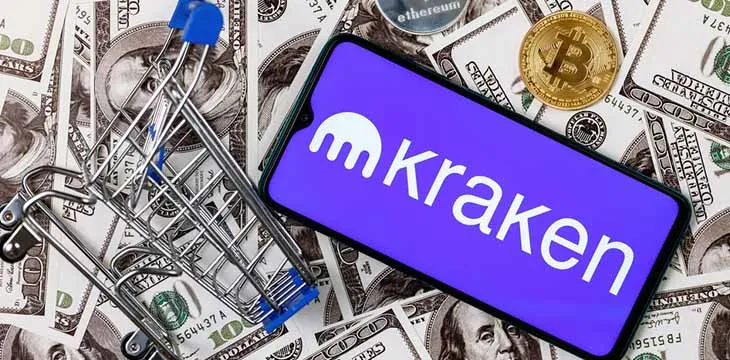|
Getting your Trinity Audio player ready...
|
Digital asset exchange Kraken is bringing the fight to the U.S. Internal Revenue Service (IRS), requesting a federal court in San Francisco to intervene in the IRS’s “too broad” demand to present exchange user information to the court, in what the company describes as an “unjustified treasure hunt.”
In a petition filed on April 21 with the U.S. Court of the Northern District of California in San Francisco, Kraken argued that it should not be required to comply with “the enormous burdens” imposed by the IRS’s request for user data.
This resistance from Kraken comes in response to the IRS’s February 3 summons, which called for additional user information to identify Kraken accounts that conducted at least $20,000 in digital asset trading in any single year between 2016 and 2020.
The cryptocurrency exchange stated that the IRS’s demands were “irrelevant, broader than necessary for its purposes, and burdensome,” citing as precedence Coinbase’s case from five years ago, the U.S. v. Coinbase 2017. In this matter U.S. Magistrate Judge Jacqueline Scott Corley drastically narrowed the scope of the summons and permitted the IRS to seek only basic personal information and transaction records for Coinbase’s users.
Kraken stated that now the IRS was asking the Court to ignore the 2017 Coinbase (NASDAQ: COIN) case and enforce a more egregious summons for information on Kraken:
“The IRS doubles down, making even more expansive requests and relying on a thinner rationale. Not only does it ask for several of the same categories of information that were rejected in Coinbase, it wants more—and for a much bigger universe of users.”
Such a summons, Kraken argued, would be far broader than necessary to achieve the IRS’s purpose of investigating potentially underreported taxable gains.
Kraken’s fines
This is not the first time that Kraken has come into conflict with a U.S. government agency. In February the exchange was fined $30 million by the Securities and Exchange Commission (SEC) and forced to give up its U.S. token-staking business.
The SEC’s complaint noted that Kraken offered staking programs on 15 different tokens, including Ethereum, Solana, Cardano and Luna—the latter before was revealed to be essentially worthless in May 2022.
The SEC argued that Kraken had not disclosed to pool members what rewards the exchange kept for itself, leaving customers unable to determine “if they are receiving their fair share of the staking rewards.” Kraken also didn’t disclose fees or costs to operate the staking program, the SEC stating that the exchange:
“Offered and sold investment contracts without registering the offer or sales with the SEC as required by the federal securities laws, and no exemption from the registration requirement applied.”
Without admitting or denying guilt in the matter, Kraken decided that it was not up for the fight and paid out. In their case against the IRS, it appears they believe it is worth the trouble, and with the help of precedent they may get a favorable ruling.
Follow CoinGeek’s Crypto Crime Cartel series, which delves into the stream of groups—from BitMEX to Binance, Bitcoin.com, Blockstream, ShapeShift, Coinbase, Ripple,
Ethereum, FTX and Tether—who have co-opted the digital asset revolution and turned the industry into a minefield for naïve (and even experienced) players in the market.

 07-13-2025
07-13-2025 





